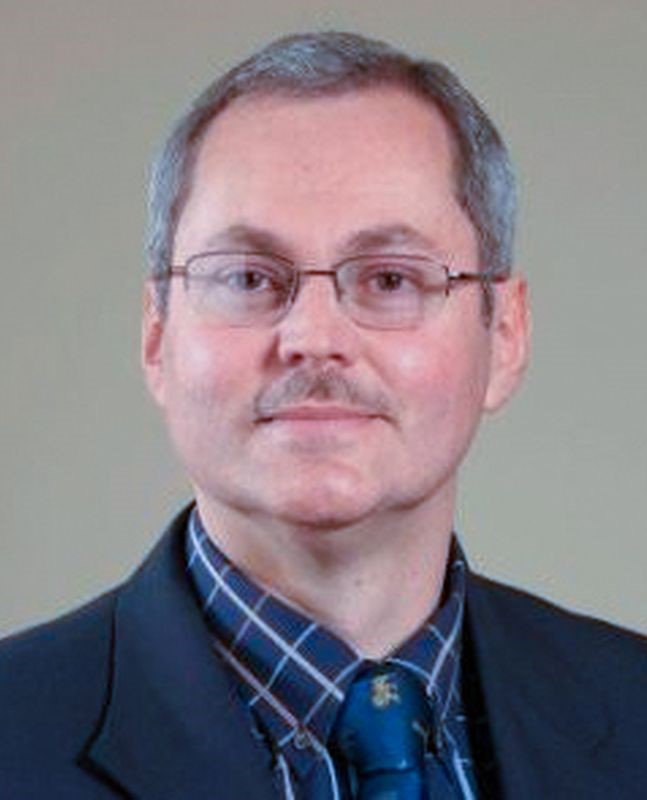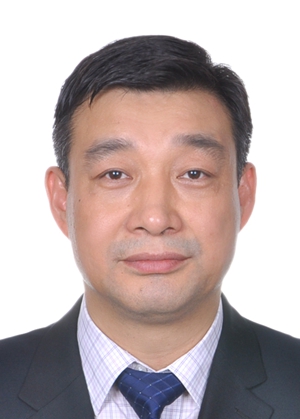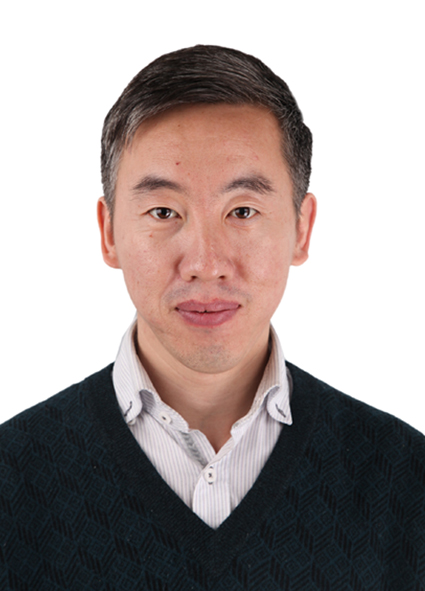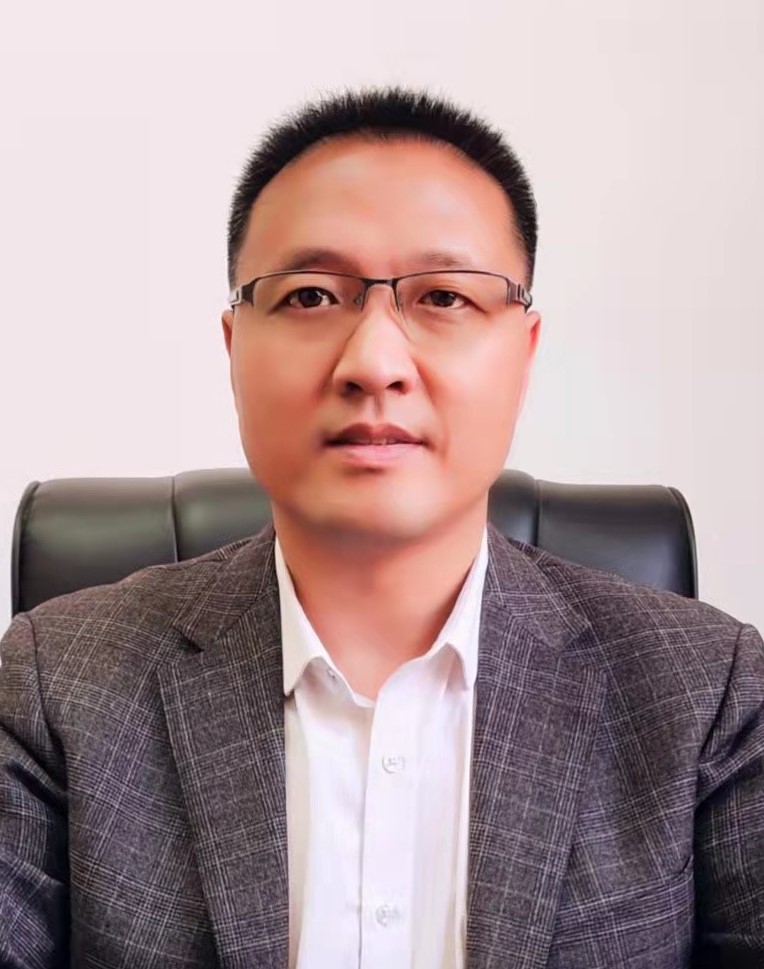
Speakers of ISSTC 2023
| Prof. Wynand LouwNational Metrology Institute of South Africa, South AfricaBiography: Dr Louw currently is the Director of Research and Technology Development at the NMISA, including Technical Cooperation and International Metrology Cooperation. Dr Louw competed his PhD in Physics at University of Free from 1981 to 1987. He is a Member of the International Committee for Weights and Measures since May 2013. He is also the CIPM since November 2014, President of the CIPM Consultative Committee for Ionising Radiation, CCRI. His duties include creating an enabling environment for NMISA scientific staff to perform research and improve scientific outputs and manage IP. He also fosters collaboration with Academia, Science Councils and other Research institutes/groups and has been a liaise on a national and international level with other national metrology institutes (NMIs) and manage the relationship with regional metrology organisations (RMOs), the International Committee for Weigths and Measures (CIPM), the Bureau of Weights and Measures (BIPM), Consultative Committees (CCs) and key stakeholders nationally and internationally. He advises NMISA Management and metrologists on potential funding opportunities and schemes (e.g. Government Supply Side Measures, inter-Governmental Bilateral agreements and donor funding opportunities). He started at CSIR Electronic materials in 1987. Moved to CSIR Materials in 1991-1998. And moved to CSIR NML in 1998, became manager of Metrology in Chemistry in 1999, Manager Research and Development in 2001 and General Manager in 2002. In 2007, he became Acting CEO of the National Metrology Insititute of South Africa. In 2010, he became Director of Metrology. On 26 April 2012, he became Director of Technical Infrastructure Development, including Technical Cooperation (Regional and International affairs) and Business Development. Title:Coming soon Abstract: Coming soon |
Prof. Lijun Xu(IEEE Fellow)Beihang University, ChinaBiography: Professor Lijun Xu is currently the dean of School of Instrumentation and Opto-electronic Engineering at Beihang University, Beijing, China. Dr. Xu was elected as a Chang-Jiang Scholars Program Professor and a Scientific Innovation Leading Scientist. He is an IEEE Fellow and currently the Vice Chairman of China Association for Computer Automated Measurement and Control Technology, Vice Chairman of Beijing Instrument and Control Society, Managing Director of China Instrument and Control Society, Deputy Director of the Multiphase Flow Testing Professional Committee of Chinese Society for Measurement.He has been engaged in the field of photoelectric detection, advanced imaging, and related applications for a long time. During recent years, he has served as the Principal Investigator for more than 30 projects at the provincial or ministerial levels, and published more than 200 SCI-indexed papers. His publications are of an h-index of 34 according to Google Scholar’s statistical data. He has authorized more than 140 national invention patents. He was awarded the first prize twice for Technological Invention from the Ministry of Education, and the first prize for Science and Technology from China Instrument and Control Society. Currently, he is the Associate Editor-in-Chief of Journal of Beijing University of Aeronautics and Astronautics, and the editorial board memberof "Measure. Sci. Techn." and "Bio. Sign. Proc. Cont.". In addition, he has hosted several international conferences as the chairman and delivered keynotes and invited lectures in a number of international conferences. He has supervised more than 70 graduate students, from which 6 of them won the Best Paper Award from IEEE International Conferences, and 2 of them were selected into the China Postdoctoral Innovation Talent Training Plan. Title: Laser Absorption Spectroscopy Tomography and Its Application in Combustion Process Monitoring Abstract: This study addresses the essential parameters characterizing the combustion process, including temperature and component concentration measurements, with particular focus on the primary technical challenges encountered in measuring high-performance aeroengine combustion chambers. To overcome these challenges, a combination of tunable diode laser absorption spectroscopy (TDLAS) technology and tomography imaging is proposed for non-contact measurements of combustion gas temperature and concentration fields. This integrated approach offers several advantages, such as eliminating the need for pre-processing, providing rapid response times, ensuring data accuracy, and enabling simultaneous measurement of multiple parameters. The obtained results are highly relevant for online measurements of high-temperature gas concentration and temperature distribution, positioning it as a forefront technology in the non-contact testing domain for aeroengine combustion processes. |
|
| Prof. Maria Pia Fanti(Fellow of IEEE & AAIA)Polytechnic University of Bari, ItalyBiography: Maria Pia Fanti received the Laurea degree in electronic engineering from the University of Pisa, Pisa, Italy, in 1983. She was a visiting researcher at the Rensselaer Polytechnic Institute of Troy, New York, in 1999. Since 1983, she has been with the Department of Electrical and Information Engineering of the Polytechnic of Bari, Italy, where she is currently a Full Professor of system and control engineering and Chair of the Laboratory of Automation and Control. Currently, she is IEEE Fellow and Fellow of the Asia-Pacific Artificial Intelligence Association. Her research interests include management and modeling of transportation, logistics and manufacturing systems; discrete event systems; Petri nets; consensus protocols; fault detection. Prof. Fanti has published more than 325 papers and two textbooks on her research topics. She was senior editor of the IEEE Trans. on Automation Science and Engineering and she is Associate Editor of the IEEE Trans. on Systems, Man, and Cybernetics: Systems. She was member at large of the Board of Governors of the IEEE Systems, Man, and Cybernetics Society, and currently she is member of the AdCom of the IEEE Robotics and Automaton Society, and chair of the Technical Committee on Automation in Logistics of the IEEE Robotics and Automation Society. Prof. Fanti was General Chair of the 2011 IEEE Conference on Automation Science and Engineering, the 2017 IEEE International Conference on Service Operations and logistics, and Informatics and the 2019 IEEE Systems, Man, and Cybernetics Conference. Title:Machine learning and deep reinforcement learning in automotive, traffic management and structural health monitoring Abstract: The increasing availability of data coming from sensors is changing the way to take decisions in important industrial areas. The talk will present some results about machine learning (ML) and deep reinforcement learning (DRL) techniques applied in different automation fields: automotive, traffic management and structural health monitoring. Autonomous braking systems based on an intelligent agent trained with DRL can interact with the environment, collect data and react by controlling the vehicle speed when uncontrolled events require an action. Supervised ML algorithms are applied to the predictive maintenance of electro-injector of diesel engine by novel non-invasive approaches. DRL approaches are used for efficiently handling by intelligent traffic lights road traffic in road intersections where priority issues are important. Innovative methods based on ML tools are used for detecting damages in steel truss railway bridges to classify raw strain multivariate time series data. |
Prof. Chao WangTianjin University, ChinaBiography: Chao Wang is a professor at the School of Electrical Automation and Information Engineering, Tianjin University, China. His research interests mainly include single-phase and multiphase flow measurement and instrumentation, as well as electrostatic tomography (including ERT, ECT, EMT, and EST, etc.). Major research projects: 1. National Natural Science Foundation of China (NSFC) project, Non-contact detection method of electrical properties of flame considering the polarity of charged particles (2023.01-2026.12); 2. NSFC major scientific research instrumentation development project, Experimental device for gas-liquid-solid three-phase fluidization with high solids content based on electric/magnetic dual-mode chromatographic imaging (2017.01-2021.12); National Natural Science Foundation of China (NSFC) project, Research on the measurement mechanism of gas-solid two-phase flow based on the decomposition and fusion of transfer and induced charge signals (2017.01-2020.12). Title: Experimental Device for Gas-Liquid-Solid Three-phase Fluidization Based on Electric/Magnetic Dual-modality Tomography Abstract: The gas-liquid-solid three-phase fluidization technology plays an important role in the petroleum industry, metallurgical engineering and environmental protection, etc. The fluidized bed is a non-uniform, nonlinear, unsteady and multi-scale complex system. So the three-phase fluidization experimental device is essential for the research and design of fluidized beds. Due to limitations in conventional testing techniques, the distribution and velocity of each phase in the fluidized bed are difficult to observe. According to the electrical parameter distinction of three phases, an electric/magnetic dual-modality tomography method is proposed. The gas phase and liquid-solid phase can be distinguished by relative dielectric constant or conductivity, and the solid and gas-liquid phases can be distinguished by magnetic permeability. A magnetic permeability EMT method based on TMR was proposed. Moreover, research has been conducted on high-precision and high sensitivity measurement, effective distribution information reconstruction and distribution information fusion. |
|
| Prof. Lide Fang(IEEE Member)Hebei University, ChinaBiography: Fang Lide, male, doctor, Professor of Hebei University, doctoral supervisor, visiting scholar of the University of Leeds, UK. Now he is the dean of the College of quality and technical supervision, the director of the national and local joint engineering research center of measuring instruments and systems, the Key Laboratory of energy measurement and safety testing technology in Hebei Province, and the director of national first-class speciality of measurement and control technology and instruments. He was selected as an expert of special allowance of Hebei provincial government, an excellent scholar of Hebei talent project and Kunyu of Hebei University. He also serves as the executive director of China Measurement and testing society, the vice chairman of the flow measurement Professional Committee of China Measurement and testing society, the member of the National Vocational Education Steering Committee of market supervision industry, the member of the national flow measurement technical committee, the vice chairman of China Measurement think tank, the expert of the Internet of things measurement expert group, and the vice president of Hebei Measurement Association. In recent years, he has published more than 100 academic papers, participated in the compilation of more than 10 national standards and measurement technical specifications, reviewed more than 20 standards and specifications, and applied for and authorized more than 90 patents. Presided over and participated in more than 30 national, provincial, ministerial and enterprise entrustment scientific research projects. As the first participant, he won 9 awards, including 3 second prizes for scientific and technological progress of Hebei Province. Title:Coming soon Abstract:Coming soon |
Invited SpeakerProf. ZaiFa ZhouSoutheast University of China, ChinaBiography: Zai-Fa Zhou is currently a Professor at Southeast University of China. He received his PhD degrees in microelectronics and solid state electronics from Southeast University in 2009. After graduation with the highest honor, he joined the faculty of the Department of Electronic Science and Engineering, Southeast University, and received the New Century Excellent Talents Award by the Ministry of Education in 2011. He was appointed as the deputy director in 2012 and the executive deputy director in 2018 of the Key Laboratory of MEMS of the Ministry of Education. His current research interests include modeling and simulation of the micro/nano fabrication processes, in situ extraction of material parameters for MEMS/NEMS, and MEMS design methods. etc.. The simulation tools for MEMS fabrication processes developed by Prof. Zhou’s group have been applied in some famous companies, such as Intel Corporation (USA), and Fujitsu Limited (Japan), etc.. Furthermmore, a series of on-line test structures of MEMS material parameters have been applied in Wuxi CSMC Semiconductor Co. Ltd., contributing to the success of China's MEMS industry entering the stage of large-scale production. Prof. Zhou has co-authored 2 scientific books, 4 chapters in scientific books, more than 60 peer-reviewed international journal papers, and authorized 32 Chinese invention patents and 6 software copyrights. Prof. Zhou participated in the development of 2 national standards and promoted the application of basic research achievements. He was the winner of the Second Class Prize of the State Scientific and Technological Progress Award (ranking 2, 2019), the Second Class Prize of the Science and Technology Progress of Jiangsu Province (ranking 2, 2018), the Second Class Prize of the Technology Invention of the Ministry of Education (ranking 2, 2013), the Second Class Prize of the Science and Technology Progress of Jiangsu Province (ranking 2, 2009),etc.. He has also served as TPC member for Asia-Pacific Conference of Transducers and Micro-Nano Technology (APCOT) from 2014, and as referee for several reputable journals in MEMS area such as Journal of Micro-Electro-Mechanical Systems, Applied Physics Letters, Journal of Applied Physics, Journal of Micromechanics and Microengineering, IEEE Sensors Journal, Sensors and Actuators, and IEEE Trans. CAD, etc.. Title: Collaborative design of MEMS and its interface circuit based on system-levelmodeling technology Abstract:MEMS include mechanical and electrical components. In tradition design of MEMS, the design of mechanical part and interface circuit are separate. For mechanical structures, finite element analysis is the usual method. The interface circuit is simulated by IC EDA tools. Therefore, the traditional MEMS face many disadvantages such as long development cycle and high cost. To solve this problem, this paper proposes a system-level modeling approach that combines the macromodel of a MEMS device with its interface circuits. This approach enables the exploration of an efficient orimization method for MEMS. The efficiency and accuracy of this approach are verified using different sensors such as MEMS thermal wind sensor. The sensors are designed and optimized by using co-simulation based on the macromodel. The test results indicate an agreement with the co-simulation results. The rsults seems to be robust to implement the co-optimization of MEMS sensor and its interface circuit. |




